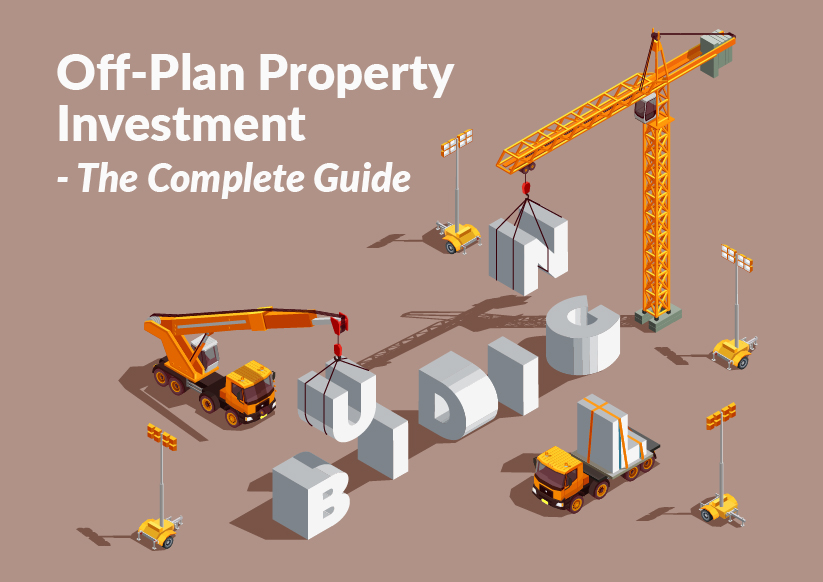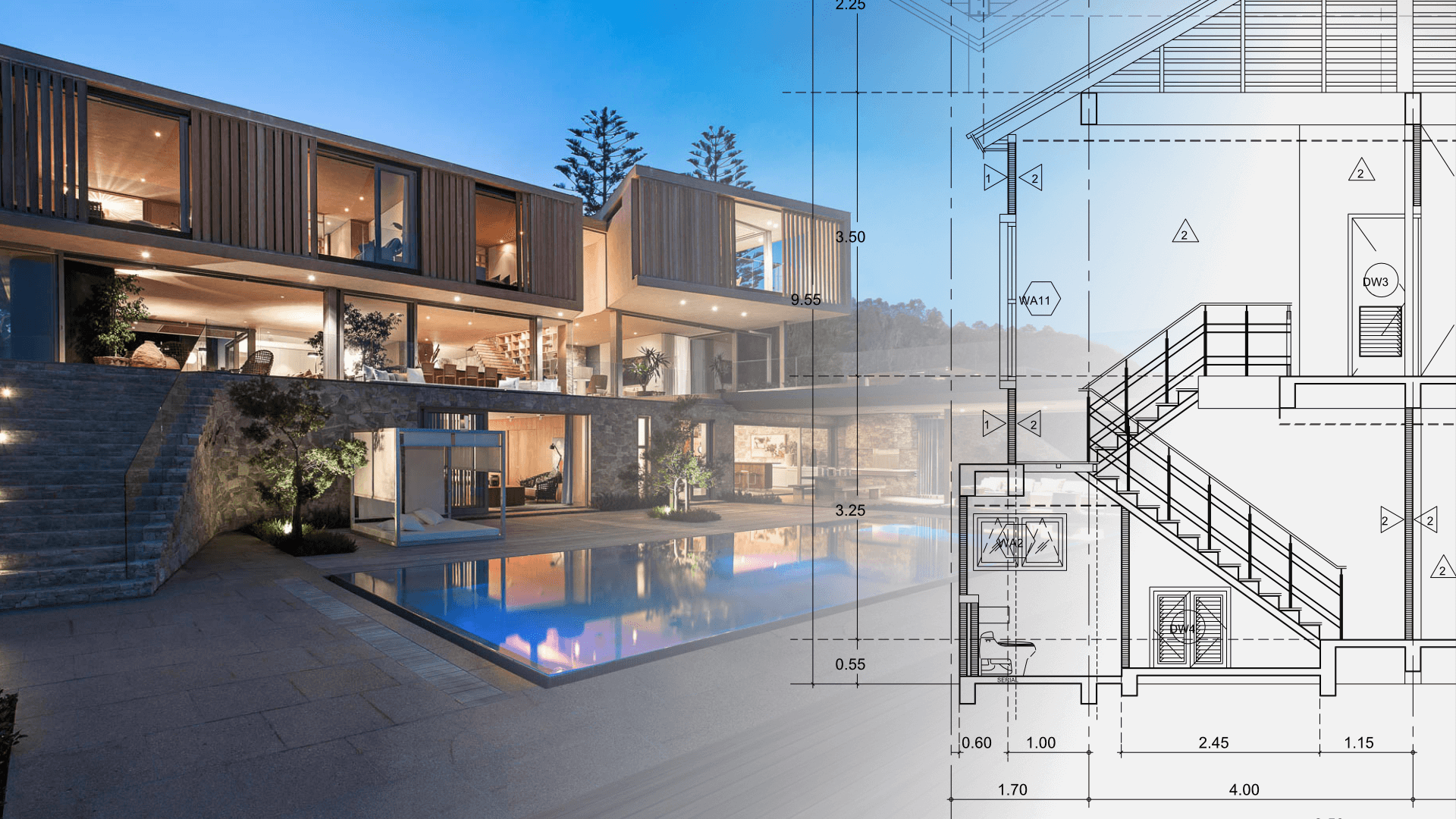Off-Plan Property Investment: A Comprehensive Guide
Investing in real estate has always been one of the most reliable ways to build wealth. However, the landscape of property investment has evolved, and off-plan property investment has become an increasingly popular option among investors. This type of investment involves purchasing a property before it is built, allowing investors to secure a property at a potentially lower price than its market value once completed. But like all investments, off-plan properties come with their own set of risks and rewards.
In this article, we will dive deep into what off-plan property investment is, its advantages, risks, and how you can start investing in off-plan properties today.

What is Off-Plan Property Investment?
Off-plan property investment involves buying a property before its construction is completed. Investors purchase the property based on the architectural plans, designs, and specifications provided by the developer. The property may still be in the planning stages or under construction, with completion typically taking place in a few years.
This type of investment has become popular because it allows buyers to secure properties at a lower price compared to completed homes, with the potential for capital appreciation once the property is finished.
How Does Off-Plan Property Investment Work?
Off-plan property investment is straightforward but involves specific steps:
- Selecting the Property: Investors choose a property based on the development plans and the location of the project. The property is usually marketed by a developer or real estate agent, showcasing plans, 3D renderings, and other detailed specifications.
-
Signing a Contract: Once you’ve selected a property, you sign a purchase agreement and pay a deposit, typically ranging from 5% to 20% of the property’s total value. The agreement will outline the construction timeline, payment schedule, and other terms.
-
Payment Structure: In most cases, you will pay the deposit upfront and then make additional payments based on certain milestones, such as when the building reaches specific stages of completion.
-
Completion and Handover: Once the property is completed, you can either sell it for a profit, rent it out for passive income, or move in yourself. The idea is that by the time the property is finished, its market value has increased, offering you the potential for a significant return on investment.
Benefits of Off-Plan Property Investment
Investing in off-plan properties comes with several advantages that make it an attractive option for both seasoned investors and newcomers to the property market.
1. Lower Purchase Price
One of the most significant benefits of off-plan property investment is the lower initial purchase price. Properties are typically priced below their expected market value at the time of completion. Investors can lock in a price and potentially benefit from capital appreciation once the property is ready to be sold or rented out.
2. Potential for High Returns
The value of off-plan properties tends to increase as construction progresses, and by the time the property is completed, its market value could be significantly higher than what was paid for it. This capital appreciation is one of the key reasons investors are drawn to this type of property investment.
3. Flexible Payment Plans
Off-plan properties often come with flexible payment plans. You may not need to pay the full amount upfront. Instead, payments are typically staggered over the construction period. This can help ease the financial burden and allow you to manage cash flow better.
4. Modern Design and Amenities
Off-plan properties are typically brand new and feature modern designs and state-of-the-art amenities. Developers usually incorporate the latest trends in architecture, interior design, and technology into these properties, ensuring that they meet the needs of modern tenants or homeowners.
5. Low Maintenance Costs
As a new property, an off-plan investment generally comes with lower maintenance costs. There are no existing issues or repairs to deal with, which is especially appealing to first-time investors who may be wary of the maintenance costs associated with older properties.

Risks of Off-Plan Property Investment
While off-plan property investment offers substantial rewards, it also carries several risks that investors should carefully consider.
1. Construction Delays
One of the most common risks associated with off-plan property investments is construction delays. The property may not be completed on time due to various factors such as financial issues with the developer, poor weather conditions, or problems with securing materials and labor. These delays can affect your plans for selling, renting, or moving into the property.
2. Market Fluctuations
The real estate market can fluctuate between the time you purchase the property and the time it is completed. Economic downturns, changes in demand, or shifts in interest rates can all impact the final value of your investment, potentially lowering its value below what you initially paid.
3. Developer Risk
If the developer goes bankrupt or fails to meet their obligations, your investment could be at risk. It’s crucial to conduct due diligence on the developer, checking their track record and financial stability before proceeding with any off-plan investment.
4. Changes to Plans or Specifications
There is always a risk that the final property may not align with the original plans. While developers typically provide architectural renderings and detailed specifications, the final product may differ due to changes in building regulations, budget constraints, or unforeseen challenges during construction.
5. Liquidity Issues
Off-plan properties are often less liquid than other investments. It can take time to sell the property once it’s completed, especially if the market conditions are not favorable. This can be a challenge for investors who need quick access to their funds.
How to Invest in Off-Plan Property
Investing in off-plan property requires careful planning and research. Here’s a step-by-step guide to getting started:
1. Research the Market
- Study the location: Ensure that the property is in a location with strong demand and growth potential.
- Understand market trends: Look at historical data to understand the property market’s performance in the area.
2. Select a Reputable Developer
- Always research the developer’s reputation and financial stability.
- Look for a developer with a strong portfolio of successfully completed projects.
3. Evaluate the Property’s Potential
- Consider factors such as the type of property, expected rental income, and the general appeal of the development.
- Ensure the location offers amenities such as transportation, schools, shops, and hospitals.
4. Secure Financing
- Arrange your financing early, as getting a mortgage for an off-plan property can sometimes be more difficult than for a completed property.
- Make sure you understand the payment structure and any associated fees.
5. Sign the Contract
- Once you are satisfied with your choice, review the contract carefully before signing. Ensure it clearly outlines the construction schedule, payment plan, and what will happen if the project is delayed or the developer fails to deliver.

FAQs About Off-Plan Property Investment
Q1: Is off-plan property investment safe?
A1: Like any investment, off-plan property investment carries risks. However, these can be mitigated by choosing reputable developers, thoroughly researching the market, and diversifying your investments. The potential for capital appreciation and lower purchase prices make it an attractive investment, but investors should carefully consider the risks.
Q2: How long does it take to complete an off-plan property?
A2: The time frame for completion can vary depending on the project. On average, off-plan properties take between 2 to 5 years to be completed, but delays are common, so it’s important to account for this in your investment plan.
Q3: Can I sell an off-plan property before it’s completed?
A3: Yes, in many cases, investors can sell their off-plan property before it’s completed. However, this will depend on the terms of the contract with the developer and market conditions at the time.
Q4: Can I rent out an off-plan property once it’s finished?
A4: Yes, once the property is completed, you can rent it out and generate passive income. Many off-plan properties are built with tenants in mind, offering modern amenities and attractive designs.
Q5: What should I look for in an off-plan property?
A5: When evaluating an off-plan property, look for a prime location, reputable developers, strong market demand, and projected capital appreciation. Researching the area’s growth potential and amenities is essential to making an informed investment decision.
Conclusion
Off-plan property investment offers a unique opportunity to purchase property at a lower price and benefit from potential capital growth. By understanding the risks and rewards, conducting proper research, and choosing the right project, investors can reap significant rewards. However, as with any investment, it’s essential to weigh the risks, be patient, and seek professional advice when necessary.
For more information on investing in off-plan properties, check out Aspen Woolf, Winson Capital, and other real estate resources that offer expert insights into the property market.

